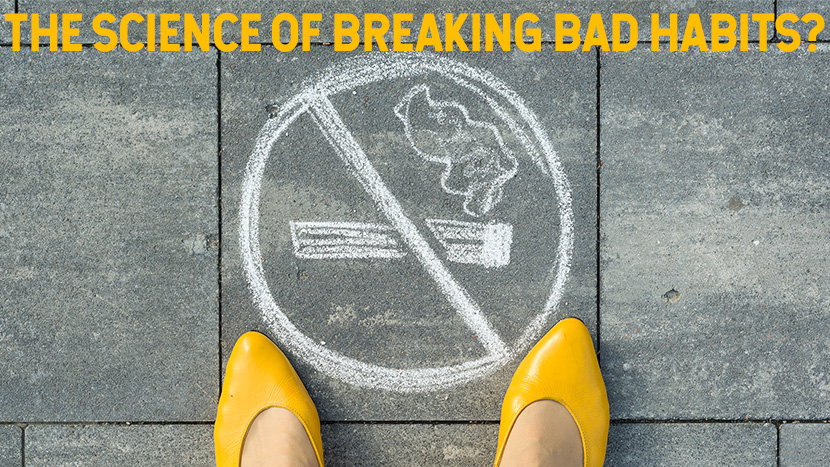The Science Behind Bad Habits (And How You Can Break Them)
Unfortunately, almost everyone has at least some kind of bad habit that they would like to change. Bad habits are not only bothersome, but also difficult to break, and we feel like we’re stuck in an endlessly-repeating cycle of negative actions. But there’s a whole science behind bad habits, and knowing this can actually make it easier to break them.
Habits can best be described as automatic actions linked to various environmental cues. Bad habits often include things like enticing solutions and shortcuts that allow us to avoid making an extra effort.
Habits can also be positive. Then they’re best described as positive routines – habits like writing down things you’re grateful for every morning, taking 10,000 steps every day, and staying hydrated. But then there are the bad habits… That’s habits such as reaching for a piece of chocolate as soon as you see a bowl of candy, or not being able to resist grabbing a smoke. Luckily, there are nowadays alternatives to some bad habits, like replacing that smoke with the Zyn nicotine pouches after a stressful day. However, the fact that these temptations are hard to resist is no coincidence. There’s actually a whole science behind it.
The Brain Is Constantly Triggered by Rewards
The simplest explanation for why it’s so hard to break bad habits is simply that the brain has a built-in tendency to want rewards.
For example – whenever we feel hungry and eat, it makes us feel satisfied and the brain gets its dose of reward. This means that we constantly want to do more of what makes the brain feel satisfied, even though the rest of the body may not react as positively to it. Sweets can be even worse, since things like chocolate help the brain produce dopamine, the “feel-good” hormone.
With that said, bad habits aren’t just a matter of lack of will. They’ve been with humans for thousands of years and involve hard-wired circuits in the brain that for many people can be almost impossible to break.
Trick Your Brain With Similar Rewards
One way to gradually break bad habits is to trick the brain. This is actually the easiest way to start, and then you may be able to break the bad habit altogether later on. That is, controlling the external environment and adapting to it to make it easier to break bad habits.
Take your nicotine addiction as an example. Many traditional nicotine products contain tobacco and other harmful substances that produce negative long-term effects. Instead of eliminating them all at once, you can replace your habit with something a little less harmful. For example, nicotine pouches.
You can purchase nicotine pouches in Canada, and start using them to reduce the harmful effects of regular nicotine products. By doing so, you trick the brain with similar rewards without the same consequences. Then , you can slowly wean yourself off the patches and finally end that smoking habit that you have been trying to break for years.
Alternatively, you can reward yourself with healthier or better “treats” when you find yourself avoiding this bad habit. For example, when you have gone a certain amount of time without doing your bad habit, you can reward yourself with a healthy sweet, a small gift, or other things that make you happy. These replacement rewards will help you to rewire your brain.
Use Your Curiosity to Break Your Bad Habit
Besides breaking a bad habit by gradually adjusting the external environment and replacing your cravings with something less bad, there’s something else you can do. Research says humans can actually tap into their curiosity to break bad habits. That is, you pay attention to your habit when it appears and start thinking about why you think and react the way you do. This is a psychological challenge, often called “mindfulness” that can be difficult for many, but with a little practice, it’s not impossible to succeed. By really paying attention to why you have a certain habit, you can consciously change your thought patterns and work on ending the impulse.
In conclusion
Humans are creatures of habit, both good and bad, and breaking a habit, though tricky, is totally possible. By being mindful of your habit, and replacing this “bad reward” with more positive “rewards” you can rewire your brain to no longer accept this bad habit. If you have a bad habit you are trying to break, try these tricks, and watch the magic (or maybe better said – science) happen!

































































































